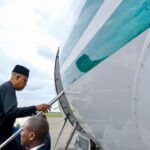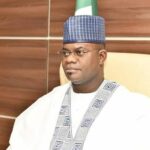
If the recent lamentation by one of Nigeria’s most decorated icons of public service – retired General Theophilus Yakubu Danjuma (alias TY Danjuma) should enjoy merit, such should derive from the lessons which it induces the country to learn. In the lament he had publicly called on Nigerians to take up arms in self defence, in the light of what he described as the failure of the military to rise up to the same challenge. He stretched his advocacy by accusing the country’s military of conniving with bands of rampaging killer herdsmen, to facilitate the wiping out of whole communities across the nation.
Dangerous, irresponsible, shocking, unpatriotic, unfortunate, unlikely and uncharacteristic as well as courageous, patriotic, bold and timely are just a few of the adjectives across the divide, which have been used to describe his comments by several commentators in their varied responses to him. And the common premise for their views has been his antecedents which make Danjuma’s comments on national issues at any time and point weighty. As a former Chief of Army Staff, Federal Minister, and currently the arrow head of the country’s initiative for delivering succor to the insurgency ravaged North East geopolitical zone in his capacity as the Chairman of the Presidential Committee on North East Initiative (PCNI) as well as the Chairman of the TY Danjuma Foundation with a record of philanthropy, it is most unlikely that Danjuma spoke off the cuff. His comments therefore had a target.
While the temptation may be strong to restrict the motive for his lamentation to a pristine concern for the killings in his native Taraba State alone, such may be a jaundiced misreading of Danjuma’s statement. That is why it is important to separate the message from the messenger at this point. Danjuma may have disappointed many and emboldened others by his statement. But the fact that his charge was against his own constituency where he rose to be its leading light remains significant. By the way, would the country’s gallant military not stop the ongoing carnage across various parts of the country by killer gangs, one may inveigh on Danjuma’s lamentation?
In all likelihood it is more acceptable to view his intervention as driven by the need to facilitate deeper introspection and change in the status quo, through deploying a scorched-earth tactic – a Mutually-Assured-Destruction (MAD) posture, to launch the country into a shock therapy. And it seems that he has largely succeeded, judging from the welter of reactions that have trailed the development. Even the military that he pointedly accused of connivance with the killer gangs, have commenced investigations into his allegations, and it is hoped that their effort will change things around.
However in the ongoing frenzy of responses to Danjuma, it will not be surprising that a most vital angle and perhaps primary causative factor to his grouse is eventually over looked. And that is the overlooked regime of depressed governance mechanism at the country’s grassroots communities, where the series of social turbulences usually originate and eventually degrade into regional crises due to poor management, only to explode ultimately as national emergencies.
It is not also unlikely that most elements in the Nigerian elite class may not have given a thought to the close congruence between the rise of the several instances of anomie across the country, with the blight of local government administration in the country. While it may have suited the whims and caprices of the powers that be to whittle down the capacities, capabilities and relevance of the local government establishment as well as its functionaries to a level of debasing impotence, the painful consequence for the country has been the retreat of law and order and reign of jungle justice at the grass roots. This is a simple logic of cause and effect.
It is in this context that the recent regret of the Speaker of the House of Representatives Yakubu Dogara over the failure of State Houses of Assembly to vote for autonomy of local governments in Nigeria as part of the ongoing constitution amendment process, falls into place. During the presentation of the resolutions of the State Assemblies by the Chairman of Nigerian Speakers Forum Abdulmumini Kamba, Dogara pointed out the incongruity of their vote for autonomy for themselves while denying the Local governments the same liberties. Dogara’s observation remains a measure of the scope of self-denial of the dividends of grassroots democracy and good governance which the country’s political leadership have attracted to the entire nation.
The framers of the Nigerian Constitution in their wisdom provided for an elected local government system that would administer law and order at the grassroots towns, villages, and hamlets, which are usually far removed from the urban areas where the power elite confined themselves to. The same Constitution assigns to these local governments specific assignments to be carried out either exclusively or in conjunction with the respective state governments.
However in the warped judgment of several successive state governors and their fawning acolytes, the local governments have largely been reduced to simple extensions of the private estates of the potentates where their word remains law. The acute odiousness of the situation is that not less than 85% of the country’s 774 local government councils are operating in breach of the Constitution as they are run by Caretaker Committees whose membership and tenures are determined solely by the arbitrariness of the respective state governors. This anomaly is not helped by the equally blatant breach of the Constitution by the Federal Government in allocating funds to these unelected local governments.
Against the backdrop of the fore going therefore there cannot be a more pernicious way to spawn discord and conflagration at the grassroots, by denying them the benefits of democratically elected local governments which they can identify with, and trust to resolve local crises among them as and when due.
In the final analysis, while the foregoing may not justify the resort of Danjuma to adopt stampede measures just to score a point when he is always at liberty to convey whatever message he has to the highest power circles in the land, his intervention should draw the line in the sand that enough is enough. It is high time the country reassesses how it wants to be governed, either as a united Nigeria or as a worse-case scenario in comparison to Somalia, just as Danjuma had warned.
Perhaps in a less explosive choice of words than Danjuma, this is hoping that his intervention ushers in the one good turn now, that will save the country’s journey to the desired nationhood.
 Join Daily Trust WhatsApp Community For Quick Access To News and Happenings Around You.
Join Daily Trust WhatsApp Community For Quick Access To News and Happenings Around You.


